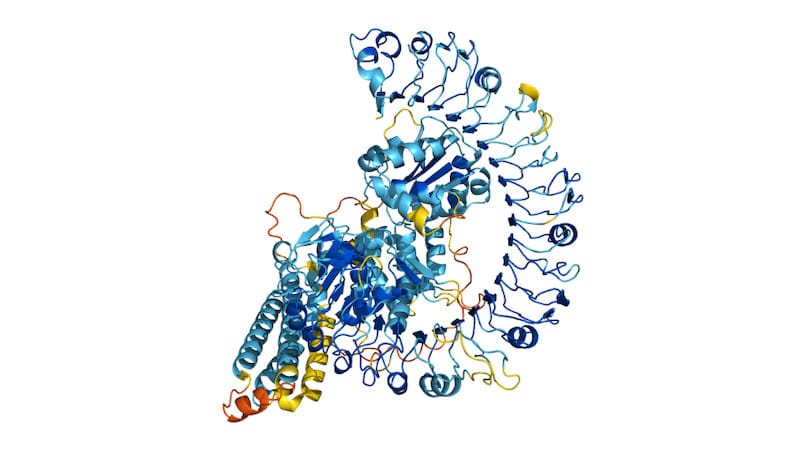
Researchers are now constantly creating new proteins and structures with the help of AI systems. They could help break new ground in medicine.
With the help of AI systems, researchers recently succeeded in producing numerous new proteins. These could be used as medicines, industrial enzymes or in research. Protein design competitions, such as those run by the biotech company Adaptyv Bio in Switzerland, aim to show exactly how these structures work.
Researchers use AI tools like AlphaFold to design new proteins and test their effectiveness in competitions. These competitions have the potential to significantly advance protein design. And this to a similar extent as was already the case with the prediction of protein structures as part of the renowned CASP competition.
AI proteins cannot be adequately tested
AlphaFold, the winning tool from 2018, made a breakthrough in predicting protein shapes. Now many hope that scientists and engineers will make similar progress in designing new proteins. Although AI tools deliver impressive results, research still faces major challenges.
The production of artificially designed proteins often occurs faster than they can be tested in the laboratory. This makes it difficult to identify and further develop the best approaches. Competitions offer a solution by bringing people together from around the world to share ideas and promote the best designs.
But the competitions themselves have hurdles. Because it's not always easy to determine which designs are most effective and how to fairly determine the winners.
AI competitions: Even laypeople can take part
The danger is that unclear criteria hinder the progress of all research. However, despite the challenges, there is also hope. The new competitions attract not only experienced scientists, but also people without professional experience. Some participants even design their proteins using simple home computers.
This open approach could massively facilitate access to protein design and drive innovation. The results of previous competitions show that although many designs do not work as planned, there are some promising approaches. In the long term, such initiatives could transform the field of protein design and open new avenues in medicine and other fields.
Also interesting:
Source: https://www.basicthinking.de/blog/2024/10/21/ki-proteine/


